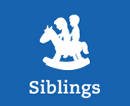It is inevitable that you will come across unhelpful and unsupportive people in your community and even in your family.
Autism families shared their advice, how to deal with unsupportive people.
Some people do say the most unhelpful things:
• ‘My son did that same thing and he isn’t autistic.’
• ‘You shouldn’t take your child to the shops.’
• ‘Don’t be such an anxious parent, she will grow out of it.’
• ‘He doesn’t look autistic to me.’
• ‘She’s just spoiled.’
• You’re just lazy parents’
At the time you are learning about autism you might also be realising that there are – still – many misconceptions about it. The most hurtful is, of course, the old clanger that autism is caused or made worse by poor parenting.
You may know that people’s ignorance is behind what feels like cruelty. It still does hurt though.
In the early days, you are not likely to have time to become an autism advocate who has time to educate the community. There is plenty of time for that later if you wish. At the beginning, it is probably best to just ignore the ridiculous things that people say. Switch your attention to the people who are kind, understanding and helpful.
Some families choose to have their children or themselves dressed in autism awareness clothing, so that people may be more understanding. But you do not need to reveal your child’s diagnosis to people, particularly when out and about.
Things get harder when your own family and friends are not supportive.
All you can do is to try to give family and friends information about autism and your child. It can be completely understandable to find their comments or beliefs upsetting. If this persists you might be better to detach from unsupportive people, at least for a while.
There will be other family and friends who are supportive and accepting, and it is better to gain the emotional and practical support you need from them.
Extended family in denial
It is not unusual, sadly, for extended family members to be in complete denial about a child’s diagnosis. This can also happen with a parent too. Whilst upsetting for the parent who is the main carer, this is a situation which often resolves in time.
If you can provide some information and then give family members some breathing space, their denial may ease.
Remind them that a diagnosis is the pathway to services, education and support and can be a very positive time for families. Diagnosis can lead to far greater understanding of a child and an easing of stress in the child’s and parent’s life.
Family members’ reactions can vary widely depending on their own personality and understanding of child development. It may be very upsetting for you to feel that your extended family is letting you down when you need them most. If you can manage not to burn bridges, but to give people time to process the information, hopefully things will improve.
In the meantime, look for help from the people you know you can rely on, that is where your support and care will come from.





























